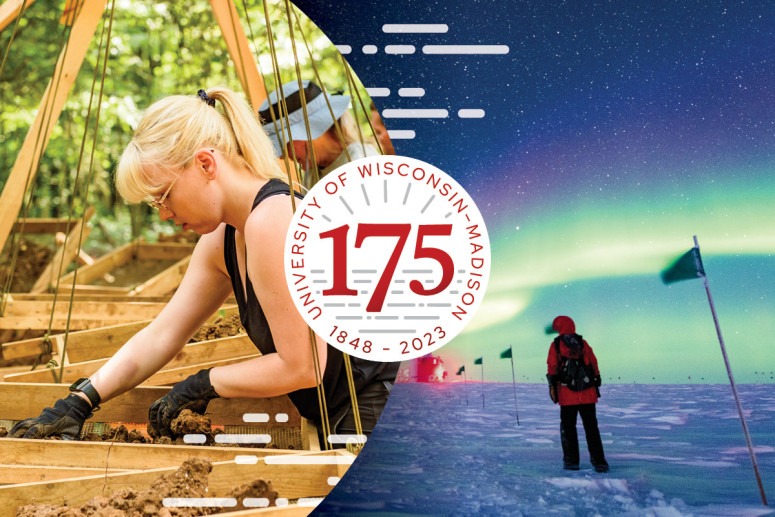19 Feb 175th Anniversary: UW research spans the globe

UW’s global efforts range from finding and identifying the remains of service people in France, left, to research at the IceCube Neutrino Observatory in Antarctica.
At Alumni Park, University of Wisconsin–Madison students past, present and future stop to take pictures of the lines radiating from a Numen Lumen seal set into the sidewalk. One line notes the exact distance — 9,181 miles — from Madison to the South Pole, where UW keeps research staff.
UW–Madison researchers are at work on every continent, recording collisions between neutrinos in Antarctic ice more than 9,000 miles away, following the path of disease transmission such as Zika and Ebola in West Africa, recovering and identifying the bodies of missing U.S. military service members in France through the UW–Madison Missing in Action Recovery and Identification Project and following the monarch butterfly migration to and from Mexico via Journey North.
“Research unifies humanity on a global stage,” says Cynthia Czajkowski, interim vice chancellor for research. “Worldwide, we share many of the same big and complex issues such as global warming, food insecurity, disease and even questioning how life began on earth. Throughout UW–Madison’s 175-year history, we have leveraged UW’s reputation, expertise and relationships to enhance our global reach, and in doing so, improve the way people around the world live, work and play.”



